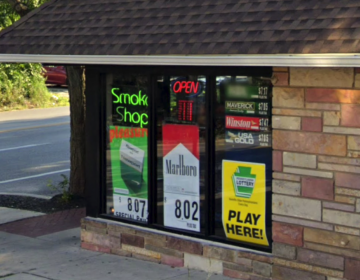A Woman’s View: domestic violence
By Donna Ward
A Woman’s Place is located in Bucks County, which is right outside the NEast, and takes in woman and children in the neighboring areas who suffer from domestic violence. For security, woman who suffer from abuse in the Northeast are taken outside the city making, it harder for their attackers to follow them. AWP provides a full range of assistance and support services for victims of domestic violence and their children, including a free 24-hour confidential hotline, a full-service residential shelter, individual and group counseling, legal and medical advocacy and a children’s program.
AWP is a non-profit foundation dedicated to the resistance of domestic violence against women. While the shelter will help abused men, it usually sees an influx of female clients in need of housing, court assistance, childcare or psychological help. Many people do not realize domestic violence is not limited to just physical abuse, but that it also incorporates mental and emotional abuse. “When I think domestic violence, I think one person hitting another or beating them up.” said Jennyfer Loss of the NEast. “I had no idea until AWP that abuse could also be emotional or mental, but it makes sense.”
Domestic violence is a specific and deliberate pattern of behavior for the sole purpose of establishing and maintaining power and control over another person in an intimate relationship. Domestic violence has many forms, including physical violence, sexual abuse, emotional abuse, intimidation, economic deprivation and threats of violence One in four women in the U.S. will experience domestic violence in her lifetime. One in four teenagers will experience domestic violence in a relationship before they’re 18. These staggering statistics and definitions are posted on AWP’s Web site, along with hotline information and available services.
The hardest abuse to overcome is physiological abuse, which can consist of different kinds of violence. Verbal violence includes threats, insults, put-downs and attacks. Nonverbal threats may include gestures, facial expressions and body postures. Psychological abuse may also involve economic and/or social control, such as controlling the victim’s money and other economic resources, preventing the victim from seeing friends and relatives, actively sabotaging the victim’s social relationships and isolating the victim from social contacts.
Women who suffer from psychological abuse have the most difficult time breaking free, as they’ve been made to feel inferior and mentally beat down over a period of time. While psychological abuse is harder to prove with physical evidence, its lasting effects can linger longer than those of physcial abuse.
The first thing to do if you experience physical domestic violence is to file a Protection from Abuse order with the court. A PFA is a civil order that provides protection from harm by family or household members, sexual or intimate partners or persons who share biological parenthood intended to bring about an end to violence. The PFA does not, however, offer protection from verbal, mental or emotional abuse, but offers protection in situations where physical harm or death is potential or threatened.
AWP will provide legal help and assistance in filing the PFA and can help with court costs that accompany the submission of the PFA. AWP will also accompany you to court and advise you on the necessary documents and evidence you will need to present. Any photographs or verbal recordings can help to prove the necessity for the PFA.
Physical violence that threatens a life, whether it is the woman’s life or the life of her children, is intolerable and should be stopped. Women have a harder time in most abusive relations, because their significant other is generally stronger than they are and can easily dominate them into submission out of fear. Most times after, the male partner has been violent, his tension level is down because he has released his aggression, making him look seemingly innocent, and therefore, hard for the female to prove abuse. Keeping a daily log or any physical evidence will help in the submission of the PFA in court.
“I feel it is wrong that some people think women seek out the men that will abuse them because of their past.” said Ivy Hutchinson, a NEast shopper. “As a person who had suffered from an abusive marriage, you don’t know your partner is abusive until after they have a hold on you, and in my case, I had kids. It made it even harder to get away.”
Friends and family members of the abused victim can play a big roll in getting the victim to safety. Supporters of the victims should encourage and empower the woman to find a safe haven without adding disappointment or condescending comments, which will only add to her already low self-esteem. A common mistake that people make when trying to help a victim of domestic violence is being too judgmental or giving up. Saying things like, “What are you stupid for staying?” and, “I can’t do this anymore you’ll just go back to him anyway,” only succeed in isolating the victim more.
“So many family members would tell me, ‘you’re stupid if you stay,’ and they would cut me out of their life because of it. That really hurt and made it hard to overcome.” Hutchinson said. “The hardest part for me was my self-esteem and having been told I couldn’t do anything right, was worthless and stupid made it very hard to get the courage to finally leave.”
If you are uncertain how to handle the situation, the best way is to obtain the correct information and course of action before you speak with the abused victim, and present options in a calm nonjudgmental attitude. AWP offers a 24-hour hotline – 1-800-220-8116 – not just for victims of domestic violence, but also for anyone looking for help or information regarding domestic abuse. If you or someone you know has been or is being abused, AWP invites you to contact its hotline to discuss available services and safety preference.
With the economy growing worse, the rate of domestic violence is increasing due to the elevated levels of stress now prevalent in today’s society. It is important to understand what is violence and what behavior is inappropriate. Remember that the best solution to domestic violence is to never let is start.
A Woman’s View is a column about women’s issues written by NEast Magazine’s columnist, Donna Ward. The column appears every other Thursday on NEastPhilly.com.
WHYY is your source for fact-based, in-depth journalism and information. As a nonprofit organization, we rely on financial support from readers like you. Please give today.






